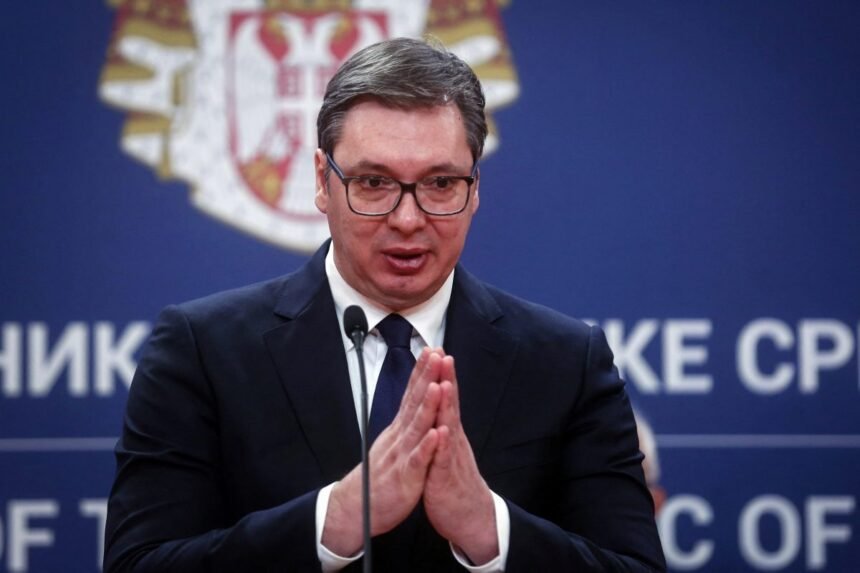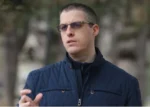President Aleksandar Vučić continues to oscillate between blaming foreign powers and defending his supporters as Serbia faces growing public unrest.
In front of the National Assembly, two opposing groups clashed. On one side, citizens gathered to support Dijana Hrka, whose son Stefan Hrka died in the collapse of a railway station canopy in Novi Sad. On the other side, pro-Vučić activists occupying “Ćacilend” aggressively confronted and harassed Hrka and supporters, hurling pyrotechnics and other dangerous objects.
While the police intervened, they primarily protected the “Ćacilend” crowd, allowing them to continue intimidating grieving citizens peacefully demanding justice.
Vučić, as expected, defended these individuals in a state-aligned media appearance, describing them as “heroes” and “symbols of freedom.” He then escalated his rhetoric, accusing the U.S. Embassy of coordinating with protesters, framing foreign diplomats as orchestrators of unrest.
“People noticed fewer supporters than expected—less than 40,000 instead of hundreds of thousands—and it made them nervous. I ask what they discussed with U.S. Embassy officials? Pionirski Park is a symbol of freedom; thanks to everyone there. Blockaders were disturbed by national songs,” Vučić said.
This is part of Vučić’s long-standing narrative that Serbia is under threat from external and internal enemies, switching targets from the West to the U.S. when convenient. Analysts like Boško Jakšić note that Vučić’s diplomacy has failed, isolating Serbia internationally and leaving him without credible allies.
“Vučić has repeatedly mishandled relations with Europe, and even his alignment with Donald Trump appears to have failed. He struggles to find genuine allies and constantly creates enemies,” Jakšić commented.
Meanwhile, the tragedy in Novi Sad remains unresolved. Citizens and students continue to demand political and criminal accountability for the collapse of the canopy on November 1, 2024, which killed 16 people. Hrka began a hunger strike, demanding justice and transparency. Yet Vučić’s narrative focuses on blaming foreign powers while protecting those who harassed victims’ families.
The president’s inconsistent statements—sometimes portraying the West as a threat, other times as an ally—expose a leadership struggling with legitimacy amid escalating civil discontent.







